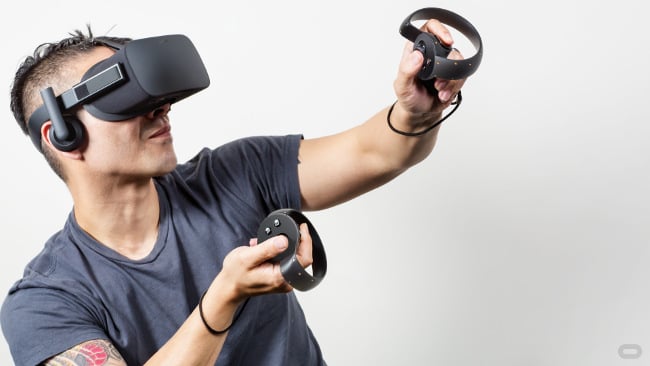
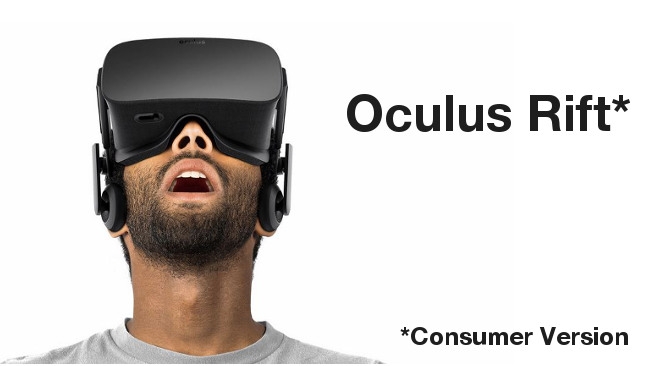 Oculus Rift: Consumer Version
Oculus Rift: Consumer Version
With competition in the emerging virtual reality market heating up, Oculus Rift showed off its consumer headset and accessories, including two ways to control the action.
At one time, Oculus Rift was the most recognizable name in the burgeoning field of virtual reality products and with good reason. Its highly-successful Kickstarter campaign re-introduced VR technology and a potentially groundbreaking gaming and entertainment platform to the public. But since Oculus Rift's $2B acquisition by Facebook, we've seen electronics heavyweights entering the fray, including Sony, Samsung and HTC/Valve, all with current or soon-to-be-released VR products.
The field expands when taking augmented reality into account, which eschews full visual immersion for a blended experience whereby digital images and objects appear in your normal field of view. In the category of augmented reality, Microsoft aims to make an impact with its Hololens product, shipping later this year, and the secretive Magic Leap startup, which garnered more than $500M in venture funding (mostly from Google), has impressed the lucky handful of folks who have experienced its demo firsthand.
Any news is good news
Too much competition is often bad for business, but in the case of a nascent industry that is set to take off, the more competition, the merrier. All of these names and products jockeying for the public's attention (and dollars) will only raise awareness of VR for consumers that may not be following developments that closely. Sure, there will be winners and losers in the years to come, but for now, I posit that all VR tech manufacturers benefit from any VR news coverage, regardless of which product is being profiled.
Oculus Rift on deck
Today, it's once again Oculus Rift's turn to step into the spotlight, as the company just released images and information surrounding the consumer version of its VR product. If you've experienced Oculus Rift content before now, you strapped on a Dev Kit headset, not what will ship in Q1 of 2016. Here are a couple views of the consumer product and included accessories:
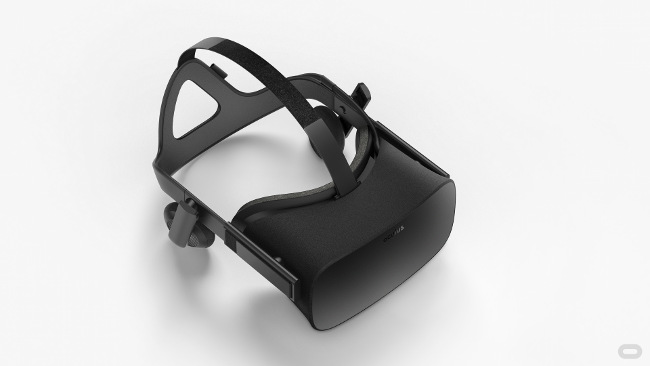
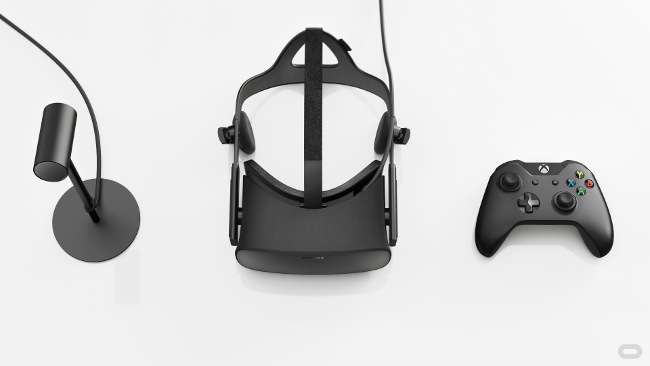
The consumer Oculus Rift will be much lighter than the Dev Kit models, with a fabric-shielded frame that holds an OLED screen for each eye and removable headphones. A small camera that tracks LED markers on the headset for movement tracking. For the controller, Oculus Rift has reached out to Microsoft and will include an Xbox One wireless gamepad, rounding out the consumer package.
The inclusion of a Microsoft product in the consumer Oculus Rift offering is an interesting decision. One might have expected a proprietary control device, but when taking account the functionality needed, perhaps it didn't make much sense to reinvent the wheel. And there could be greater business implications, as Microsoft may leverage its own retail and marketing channels to assist Oculus Rift, as the two brands have become associated with one another.
Touch future
For those who want a little more 'next-gen' in their controllers, Oculus Rift also released information about the Oculus Touch:
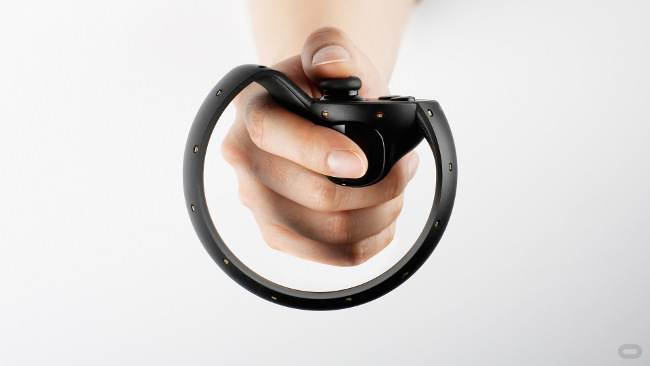
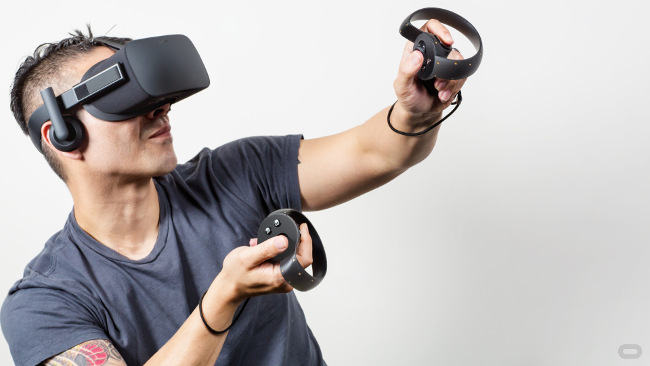
These prototype controllers track motion and provide haptic feedback, which mean that if you're parrying with a virtual sword, the in-headset images will match your movements and the controller will give you a jolt as your blade touches your that of your opponent. Of course, this innovated control system isn't relegated to just mimicing bladed weapons; the controllers will allow users to grab, touch and wield all manner of virtual objects.
Expect more announcements from Oculus Rift at E3, the video game industry's biggest showcase and convention. And check back with RedShark News as we expand our coverage of virtual and augmented reality, as we believe that these technologies have the potential to transform the way we consume and create content.
Tags: VR & AR


Comments